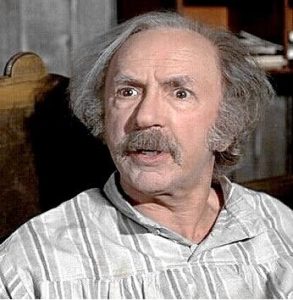The Twilight Zone continues to stand the test of time
because the writers didn’t concern themselves solely with the fashions of the day. Rod Serling, the creator and primary writer, focused on the big picture. He picked apart technology and its role in our lives. He drilled down into the core of man and presented what he found in five seasons of generally compelling television. If you watch all five seasons, you’ll be left with the impression that Serling believed man to be a complex animal, full of contradictions and entirely unable to learn from his mistakes. Serling seemed to believe that man possesses, at the very least, a cockroach’s persistence, clinging to life despite the inevitable series of disasters that are the hallmarks of his existence.
Many Americans are still trying to figure out what happened on November 9th. If Rod Serling were alive today, I don’t think he would be the least bit surprised with the outcome. Here are nine episodes that, if viewed with an open mind, might impart some of his wisdom.

The Shelter –Ssn. 3, Ep. 3
Longing for the carefree days of the mid-1960’s when the threat of nuclear annihilation was an ever-present

reality? “The Shelter” offers a glimpse into America’s not-so-distant past, and perhaps its not-so-distant future. The more intriguing (though equally timely) element of this episode is the subtle anti-Semitism and xenophobia that manifests during the story’s climax. This is one of Serling’s darker takes on human nature.
The Mirror Ssn. 1, Ep. 6
Peter Falk does a fiery turn (in near-literal brownface) as Ramos Clemente, the leader of a coup that has just seized power in an unnamed Central American country. Like many TZ episodes, “The Mirror” is a cautionary tale about the corrupting influence of power. Clemente sees enemies everywhere: the Church, the people, even members of his own party.
The Gift Ssn. 3 Ep.32
Man is by nature suspicious of the unknown and fearful of what he doesn’t understand. He acts rashly. He shoots first and asks questions later. These are Serling’s damning assumptions of the human race as evidenced in this tragic little tale.
The Changing of the Guard Ssn.3 Ep.37
Americans are fed up with the establishment (at least 1 in 5 are, which is apparently more than enough). The title of this touching episode says it all. Thematically appropriate yes, but the real strength of this episode lies in a stirring performance by Donald Pleasance, who you probably know from Halloween and the Bond film, You Only Live Twice.
He’s Alive Ssn.4 Ep.4

Liberal political operatives masquerading as journalists have been name-dropping Hitler since the primaries. Hyperbole? Fear-mongering? Perhaps, but Serling might just have added his voice to the chorus. In a somewhat erratic performance, Dennis Hopper portrays a young anti-Semite/proto-white nationalist who is attempting to build a grassroots movement.
On Thursday We Leave For Home Ssn.4 Ep.16
Totalitarianism is so much more interesting when it’s steeped in narcissism.
The Old Man in the Cave Ssn.5 Ep.7
This may be the strangest TZ of them all. We open on a post-apocalyptic America annihilated by nuclear war. A ragtag bunch of villagers have been able to survive thanks to the guidance of a mysterious old man in a cave. Only one of the villagers, the ostensible leader, is permitted to communicate with him. A power-hungry band of militiamen stumble across the town and decide that they truly know what’s best for the townsfolk. Based on a short story by Henry Slesar, the episode’s thematic material runs the map from the validity of faith, to the role of technology, to man’s inability to leave well-enough alone, but nothing really gets resolved. Perhaps the message is: sometimes, things are just the worst.
The Masks Ssn.5 Ep.25
The writing in the episode is stellar. A quality that, putting all else aside, makes it my absolute favorite. Taken as a whole, the episode is part revenge story, part cautionary tale, part condemnation not only of man’s inherent hypocrisy, but his inability to recognize it when it’s staring him in the face. Especially when the face staring back at him is his own.
The Encounter Ssn.5 Ep.31
This episode stars George Takei. Excited? Don’t be. The plot isn’t just infused with racist undertones, it is pretty much propaganda rationalizing American aggression against Asian peoples. This episode premiered as LBJ was escalating military operations in Vietnam, and played expertly on America’s unique form of xenophobia. It is so ham-handed and offensive that it triggered a wave of complaints and wasn’t re-aired in the States until 2016. If nothing more, the episode reminds us that white people have been looking for scapegoats to blame for society’s ills long before this election.
This one wasn’t written by Serling, but by Martin M. Goldsmith.
All five seasons of The Twilight Zone can be streamed on Hulu, and most seasons are on Netflix as of Nov. 23rd, 2016. Think I missed an episode that belongs on this list? Comment below!

